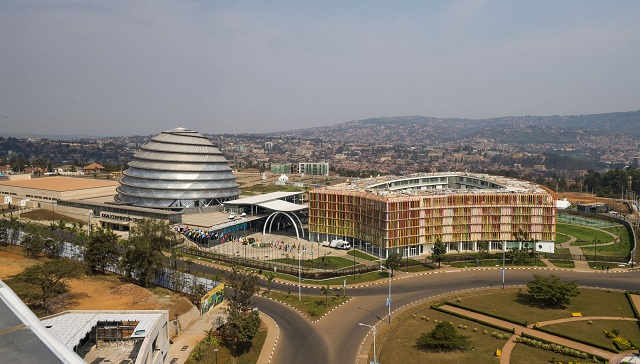
The intimate connection between political and economic institutions is the heart of development
COMMENT | ENOCK NYOREKWA TWINOBURYO | I recently visited the Rwanda – residing largely in Kigali. I was particularly impressed at the transition and strong faith by citizens in their development trajectory. There is strong unionism and strong determination to do good.
Talking loosely to colleagues, I intimated that a good number of officials in government – needless to mention the President, private sector and other stakeholders had strong roots in Uganda where some even profited from Government of Uganda bursaries and as such, they should pay us 0.5% of their tax revenue for over the next ten years.
If this was feasible, now would have been a good time to make this case, because Rwanda is increasingly growing towards self-sufficiency. In the next financial year, 84% of the budget will be funded by domestic resources and this is the highest in the region.
There are a number of reasons to underpin this strong progress in tax revenue and strong sense of effective public service delivery which collectively built strong social contracts.
The question then becomes: Why is it that those who were nurtured and raised to some extent in Uganda – are doing (‘diding’) it in Rwanda?
The answer may lie in one of my favorite books – `Why nations fail:The Origins of Power, prosperity, and Poverty’ by Daron Acemoglu and James Robinson. In this book, the authors interrogate a pertinent question why some nations become rich and others remain poor. The answer backed by over thousand years of economic history is that institutions (economic and political) matter. The intimate connection between political and economic institutions is the heart of the major development contribution. I must contend that the scope of this article is not to contextualise the book on Rwanda or even draw comparisons between Rwanda and Uganda. While I acknowledge that no model is absolute, from an observations-based perspective, there may be some lessons I think – we could draw from Rwanda.
In the economics that works, simplisticity is the key. But to do it effectively and efficiently requires doing the right thing and doing it right. This is the message coming from the top in Rwanda.
This top down approach has arguably been pivotal to building strong institutions from basic foundations and the system has no room for complacency. This is also demonstrated by the recent changes at the ministries of infrastructure, agriculture, and education board as well as the mayor of Kigali.
The public sector should not be a haven of inefficiency. This message was also underlined by Kenyan President Uhuru Kenyatta when he presided over the Pakasa Forum in Uganda in 2014. He indeed showed remorse – nostalgically referring to the 1960s and 70s when public service delivery was diligent and undertaken with pride by civil servants.
Public service delivery has far reaching effects on the wide economy and trickle down is contingent upon level of efficiency of public service. The global ratings in doing business, global competitiveness, corruption index among others put Rwanda ahead of its regional peers. In fact, Rwanda is amongst the only four African countries ranked in top 50 in Corruption Transparency International index.
The high quality of infrastructure; especially roads, is nakedly evident to anyone who visits Kigali and neighbouring towns. There is consistency of the quality of the works across the national roads, both in terms of greening the road reserve and street lighting. Until 2017, Rwanda had more traffic lights than Uganda. This is despite the fact that Uganda has 7 times more cars and also more tarmacked road mileage than Rwanda. Key focus is also paid towards road maintenance. One observable contrast, in Uganda – you see mushrooming private infrastructure without commensurate public infrastructure. This is the reverse in Kigali; visibly public infrastructure is leveraging private settlements.
Digitalisation agenda is real. This covers but is not limited to city bus transport, nationwide street parking, centralised billing machine receipts even in modest bars and restaurants (‘funa receipt yo’ is operational), e-procurement, e-tax filing system, renewal of ibyangombwa (passports, driving permits, national ID) among others. Digitalisation reduces informality and improves efficiency of tax administration.
In conclusion, strong institutions build positive sentiments and attitude requisite for economic transition. The journey is still long for Rwanda but arguably institutional environment works even at local communities level (Umudugudu). The latter is key in execution of local community works (every Saturday of the month). Rules matter. To mention inter alia –no littering, no polythene bags, the so called boda bodas (motos) have helmets, seat belts are a must, and speed limit is 60km/hour (highest). I must underline that some of these rules despite being backed by law have failed to work, to some extent, in Uganda.
*****
Dr. Enock Nyorekwa Twinoburyo is an economist based in Kigali
 The Independent Uganda: You get the Truth we Pay the Price
The Independent Uganda: You get the Truth we Pay the Price


